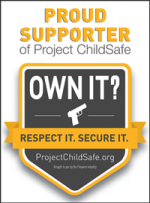This year’s Virginia General Assembly was a preview of what will happen in 2026 if Democrats take total control of Virginia Govenrment by winning the House and the Governor’s Office in 2025. The Democrats and the gun ban lobby emptied their entire wish list this year knowing there was little chance that Governor Youngkin would sign any of the bills. They introduced bans on so-called “assault weapons”. They introduced bills implementing a waiting period of anywhere from three to five days after the completion of the background check paperwork before taking possession of a firearm. They introduced a bill to prohibit carrying a concealed firearm in a restuarant like Applebees or Olive Garden – restuarants that serve alcohol as well as food. They even introduced a bill to place an additional tax on firearms and ammunition to fund gun control grants. In all, the Democratically controlled legislature sent 37 gun ban bills to Governor Younkin. Some are duplicate/companion bills so the actual policy actions are somewhat shorter but still many none-the-less. That list includes:
- HB2/SB2: bans so-called “assault firearms” and magazines holding more than 10 rounds made after July 1, 2024. The definition of “assault firearm” is expanded to capture more types of firearms. It also prohibits ownership of “assault firearms” by young adults.
- HB46/SB47: requires someone holding firearms for a prohibited person to be 21 or older and to live at a different address.
- SB57: prohibits a concealed handgun permit (CHP) holder from carrying a concealed handgun on the premises of a restaurant like Applebees or Olive Garde which serves alcoholic in addition to food.
- SB99: prohibits the carry of semi-automatic firearms with certain cosmetic features in public areas.
- HB 173/SB100: requires serialization of so-called “ghost-guns made after 1968.
- HB175: prohibits the carrying of “assault firearms” in public areas, regardless of whether they are loaded.
- HB183: requires all firearms in a home, that are not being carried by the owner, to be locked up if there is a minor present.
- SB225: requires schools to text or email subjective information on guns to parents at the start of a school year.
- SB258: expands the things a judge can consider and must consider when issuing an Red Flag Order (also known as an Extreme Risk Protection Order).
- HB1195/SB273: requires a five-day waiting period for firearm sales.
- HB318/SB491: allows for frivolous lawsuits against the gun industry with the purpose to litigate the firearms industry out of business.
- HB1174/SB327: makes it illegal for young adults to purchase an “assault firearm.” The definition of “assault firearm” is expanded to capture most commonly sold firearms.
- HB351: requires a person purchasing a firearm to sign certification that no minor lives in the home or a locking device must be included with the firearm.
- HB362: adds “dating relationship” to the definition of a “domestic relationship” for purposes of prohibiting guns for misdemeanor domestic violence.
- SB363: makes it unlawful to possess, sell, or distribute a firearm with an altered serial number.
- SB368: requires all firearms in a home, that are not being carried by the owner, to be locked up if there is a minor present.
- SB383: prohibits firearms in higher education buildings unless part of an authorized program or activity in that building.
- SB447: creates a $500 fine and makes a vehicle subject to towing if there is a visible handgun inside an unattended vehicle.
- HB454: prohibits firearms in higher education buildings unless part of an authorized program or activity in that building.
- HB466: severely restricts recognition of out-of-state carry permits.
- HB498: requires schools to text subjective information on guns to parents at the start of a school year.
- HB861/SB515: prohibits firearms in hospitals.
- HB797/SB522: removes NRA and USCCA training courses from the list of qualified training courses to qualify for a CHP.
- HB585: prohibits home-based Federal Firearms Licensees (FFLs) from operating within 1.5 miles of any elementary or middle school.
- HB637: creates a training program to make more frequent use of Red Flag Order (also known as an Extreme Risk Protection Order).
- SB642: adds “dating relationship” to the definition of a “domestic relationship” for purposes of prohibiting guns for misdemeanor domestic violence.
- HB798: takes away a person’s right to own a firearm for several misdemeanor convictions, including simple assault.
- HB799: requires a person be fingerprinted when applying for a new or renewed CHP.
- HB939: prohibits firearms within 100 feet of an electoral board, voter registration, voter satellite building, or a drop-off location or absentee voter precinct.
Ahead of last Saturday’s end of the session, Governor Youngkin vetoed two of the bills, and amended another. The House and Senate carried those bills over to the reconvened session, which will take up all of the Governor’s vetoes and amendements.
I was present in the various committees and subcommittees that took up these bills and what struck me the most was there were very few gun owners in the meetings compared to 2020 when the committee meetings were packed. It’s possible that a number of gun owners decided to let emails to their delegates and senators as well as to the committees do their talking but there just did not seem to be the individual activism this time. The Virginia Citizens Defense League (VCDL), Virginia Shooting Sports Association (VSSA) and the NRA all had representatives speaking to the bills but in 2020, committee rooms were overflowing with individual gun owners. Not so much this time. The Governor’s election is going to be very tough in 2025. Gun owners will need to either elect a pro-rights House or elect a pro-rights Governor to prevent any of the above policy changes from becoming law.
